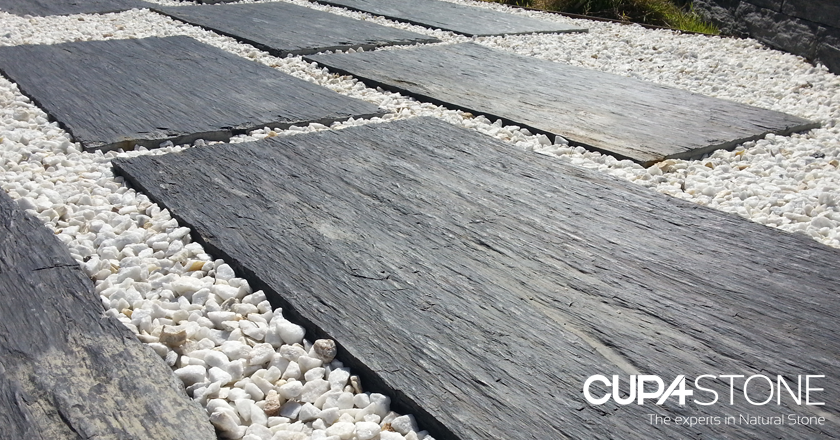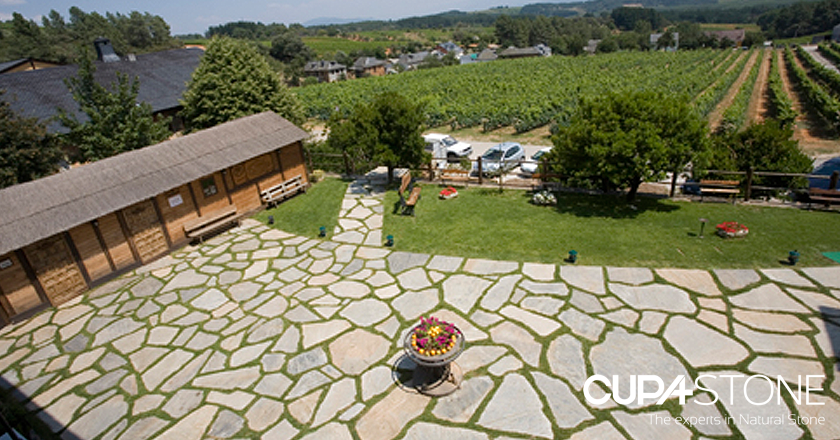 Natural stone has been a trusted material in construction for centuries, withstanding the test of time in countless architectural remains. Its resilience and beauty make it a preferred choice for external paving. When used for outdoor applications, natural stone offers an array of advantages: timeless aesthetics, superior durability, and a multitude of design possibilities. Below, we delve deeper into the benefits and technical considerations of using natural stone for paving, alongside practical advice to ensure long-lasting results.
Natural stone has been a trusted material in construction for centuries, withstanding the test of time in countless architectural remains. Its resilience and beauty make it a preferred choice for external paving. When used for outdoor applications, natural stone offers an array of advantages: timeless aesthetics, superior durability, and a multitude of design possibilities. Below, we delve deeper into the benefits and technical considerations of using natural stone for paving, alongside practical advice to ensure long-lasting results.
The Historical Legacy of Stone Paving
Stone paving dates back thousands of years, with ancient roads, plazas, and courtyards showcasing its durability. Examples include Roman roads constructed with basalt, granite, and limestone, many of which remain intact today. These historical applications highlight not only the material’s longevity but also its versatility in diverse climates and usage scenarios.
Advantages of Natural Stone in Outdoor Paving
- Exceptional Physical Properties
Natural stone, especially granite, exhibits high compression resistance, ensuring strength and stability even under heavy vehicular loads. This makes it ideal for both residential driveways and urban pavements. - Fire Resistance
Classified as A1 for fire performance, natural stone is non-combustible and does not emit toxic fumes, providing safety in high-risk areas. - Natural Integrity
Unlike synthetic materials, natural stone remains unchanged from its original state. Its authentic structure ensures superior durability and aesthetic appeal. - Low Maintenance Costs
Although the initial investment may seem higher, natural stone offers significant savings over time due to minimal maintenance and an exceptionally long service life. - Sustainability
The production of natural stone requires significantly less energy compared to man-made materials. Its recyclability and ease of disposal make it an environmentally friendly option. - Versatility in Finishes and Textures
Natural stone offers a variety of finishes, such as polished, honed, bush-hammered, and flamed textures. These not only enhance the visual appeal but also improve functional aspects like slip resistance. - Diverse Formats and Colors
From large slabs to smaller cobblestones, natural stone is available in countless formats, allowing for customized designs. Its rich palette of colors, including granites, limestones, and sandstones, suits both modern and traditional aesthetics. - Contemporary Design Trends
Modern processing techniques enable natural stone to integrate seamlessly into contemporary designs, blending functionality with elegance.
Technical Insights for Long-Lasting Paving
To achieve a durable and visually appealing pavement, proper planning and execution are essential:
- Structural Base: The base layer plays a critical role in supporting the pavement. While sand layers are sufficient for pedestrian pathways, vehicular areas require reinforced bases.
- Slab Thickness: Stone slabs must be selected with appropriate thickness and dimensions based on the expected load. For vehicular traffic, slabs should be thicker and adhere to rigorous laboratory testing.
- Joint Placement: Expansion joints prevent cracking and accommodate natural movements. A maximum surface area of 50 m² or 8 linear meters between joints is recommended.
- Installation Techniques: Errors in material placement or poorly executed designs are common causes of pavement issues. Professionals must ensure proper adherence and alignment for longevity.
Case Study: Granite Driveways in Urban Projects
Granite is a popular choice for driveways in urban and suburban developments due to its strength and sleek appearance. For example, a residential project in London used flamed granite paving to create a modern, non-slip surface. Its natural resistance to weathering ensured the driveway retained its aesthetic and functional qualities for years.
Sustainability in Stone Production
Natural stone has one of the lowest environmental impacts among construction materials. Quarrying and processing require less energy compared to materials like concrete or ceramics. Additionally, stone’s recyclability ensures it can be repurposed, reducing waste and promoting circular construction practices.
Maintenance Tips for Stone Pavements
Natural stone’s durability doesn’t mean it’s maintenance-free. To ensure its longevity:
- Regularly clean the surface with water to remove dirt and debris.
- Seal the stone periodically to protect against stains and enhance its natural color.
- Use non-abrasive cleaning agents to maintain the integrity of the finish.
-
Conclusion
Natural stone is a time-tested, sustainable, and versatile material for external paving. Its combination of aesthetic appeal, strength, and adaptability to various designs makes it a favorite among architects and homeowners alike. Whether for driveways, patios, or public walkways, investing in natural stone ensures a durable and elegant solution that stands the test of time.
For more inspiration or technical guidance, visit the CUPA STONE website.






